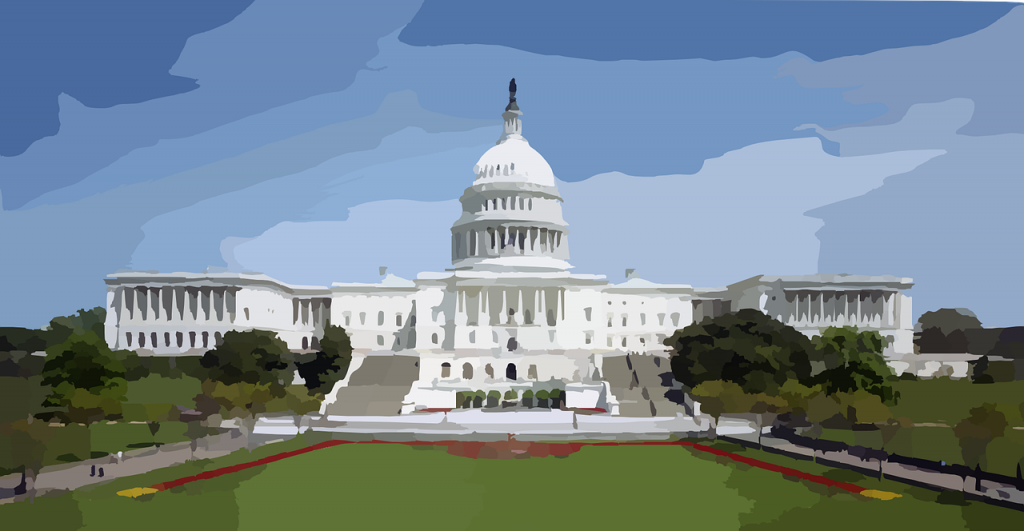
Overview: Next Coronavirus Bill – May Address Capital
Gains Tax and Affordable Health Insurance
by Dani Kehoe, Counsel to NAIFA
Things are heating up on Capitol Hill—but in a “hurry up and wait” sort of way. House and Senate Democrats say they are readying a new coronavirus response bill that they hope to unveil “in days.” It will be their “standard,” they say, from which negotiations with the GOP will begin. Some key Republicans say it’s time to pause, to see how well already-enacted coronavirus response laws are working, and to consider the impact on the spiraling federal debt. Still, most insiders (on and off the Hill) think it’s more likely than not that there will be at least one more coronavirus response bill in the upcoming weeks. Following is what we currently know about what’s being discussed for inclusion in the measure.
Small Business/PPP Help: Demand for Paycheck Protection Program (PPP) loans has slowed over the past week—folks are now predicting that more funding for the popular program won’t be needed before June. However, issues with the program’s structure have emerged, and so tweaks to its rules are likely in the next coronavirus response bill. Those tweaks may include:
- Extension of the program (it currently is set to expire June 30)
- Lengthening of the time covered by the program’s loans
- Easing of the regulatory rule that 75 percent of a PPP loan must be used for payroll expenses in order for the loan to be forgiven
- Tightening of eligibility rules to prevent larger businesses that have access to other sources of capital from getting PPP loans
- Making trade associations (like NAIFA and its chapters) eligible to participate in the PPP
The PPP and help for small businesses continue to be a “driver” of coronavirus response legislation. The pandemic’s economic impact on the nation’s small businesses has been horrific, and lawmakers are anxious to do everything they can to be sure that as many small businesses as possible survive this crisis and recover enough to prosper when we emerge at the other end of it. So, odds are high that the next coronavirus response bill will include PPP provisions.
Tax: There is also likely to be a tax title in the next bill. There is a long list of “special rules” that lawmakers want to add, but indications now are that most of them (maybe all of them) will wait for a “recovery bill,” planned for after the need for mitigation/emergency aid legislation passes. These likely-to-be-deferred provisions include many of interest/importance to NAIFA and its members. Issues like a further increase in the age at which retirement plan required minimum distributions are mandated, more catch-up contribution amounts are authorized, the interest rate for determining whether a life insurance policy is sufficiently balanced between investment and death protection, whether bonds held by insurers are capital or ordinary assets, and others are probably going to be deferred for the “recovery bill.”
Also in the mix are two Trump proposals: elimination of capital gains tax for the duration of the coronavirus crisis, and elimination of the limitation on the deductibility of business meals and entertainment. Neither of these proposals has gotten much traction on Capitol Hill (even from GOP lawmakers), but never underestimate the potential power of a Trump priority when negotiations get underway.
Health Insurance: An issue that may be addressed in the upcoming coronavirus response bill is how to help unemployed people afford their health insurance. A number of possible ways to do this are under discussion, but the most likely approach is some kind of subsidy for COBRA coverage. Hanging up agreement on that at this point, though, is a deep dispute over whether to restrict subsidized COBRA coverage to insurance that does not cover abortion services. It’s unclear how Congress will resolve this issue.
Other possible approaches include: allowing the unemployed to participate in Medicare (currently that does not seem very likely), opening up exchange-based (Obamacare) insurance (probably with enhanced subsidies) to allow newly-unemployed to buy individual health insurance, expanded eligibility (and funding) for Medicaid, and/or subsidies to employers who are continuing to pay for their workers’ (including furloughed workers) health insurance.
Employer Liability: A top GOP priority is a rule that would protect employers from being sued by workers who claim they were sickened (by COVID-19 specifically) in unsafe work environments when they return to work after the national lock-down ends. This liability protection is a “red line,” according to Senate Majority Leaders Sen. Mitch McConnell (R-KY). Democrats say they will fight any diminution of worker protection. But a compromise involving a tailored liability shield – e.g., protection for employers who strictly follow government guidelines in reopening their businesses – is possible.
Unemployment: Many lawmakers are concerned about unemployment rules—the new federal benefits ($600/week on top of regular state unemployment benefits) provided by the CARES Act have resulted in the paradoxical reality that for many lower-paid workers, there is more money to be gotten from unemployment than from working. This is a controversial issue, but one that is likely to get attention in the next coronavirus response bill.
Paid Leave: Paid leave is another contentious issue. Some in Congress want to expand it (from 80 hours/week for only coronavirus-related reasons, to longer or for broader reasons)—to large employers (current paid leave requirements apply only to employers with 500 or fewer employees), for longer time frames (the paid leave rules expire at the end of 2020), or to make it permanent (e.g., seven days/year for any appropriate sick leave reason). We’re watching this issue closely.
Stimulus Payments: Another round of direct payments—to encourage consumer spending as well as to help those who’ve lost jobs or had their working hours reduced—is possible. One new proposal that has gotten significant interest over the past few days would provide $2,000/month to all (under specified income limits) for as long as the public health crisis lasts (perhaps with another $1,000/month for a year after the crisis ends). On the other end of the spectrum is President Trump’s proposal to eliminate payroll taxes, at least until the end of the public health crisis. There is much less unquestioned support for more stimulus payments, in any form, this time than there was when the proposal was made during enactment of the CARES Act. But nevertheless, it remains possible that some form of new stimulus payments will be included in the next package.
Other: There are, of course, other priority issues that are not directly related to NAIFA interests. These include more funding for state and local governments, money for the Post Office, money to pay for remote-voting election plans, money to pay for expanded broadband access, etc. All of these issues are very much in play as lawmakers put together the next bill.



